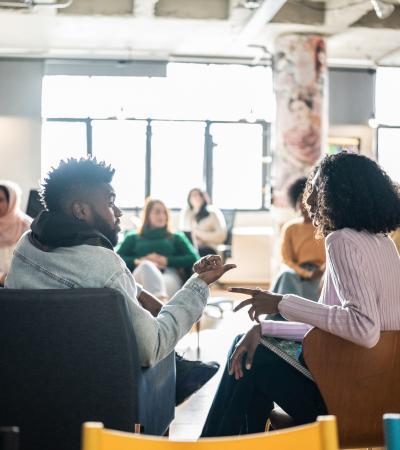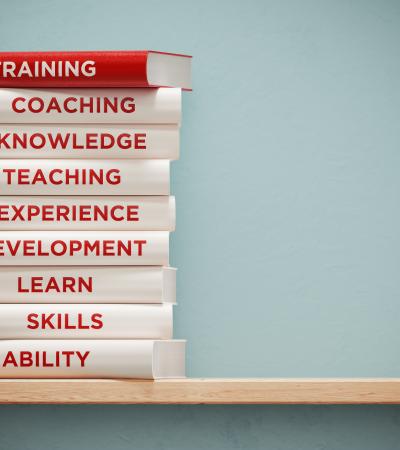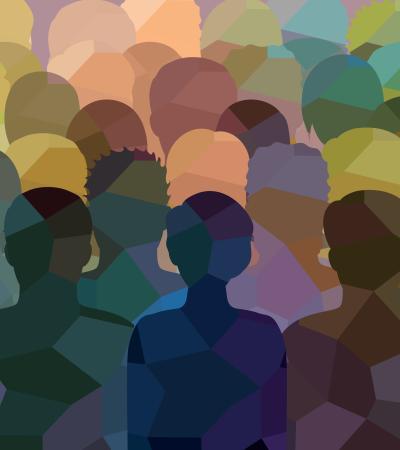Chera Kowalski is the assistant to the chief of staff at the Free Library of Philadelphia and a participant in Cohort 1 of the Skills for Community-Centered Libraries trainings.
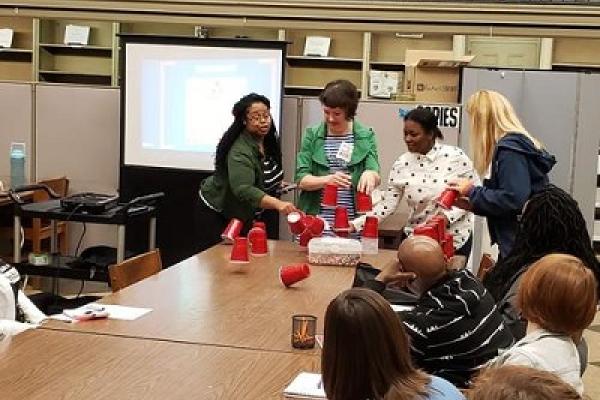
The Skills for Community-Centered Libraries training is designed to enhance Free Library staff members’ abilities to support positive changes in the neighborhoods we serve. The training defines community engagement as "building relationships between staff and surrounding community to empower people to take ownership of their library and its resources." This is a conscious shift from building the Free Library’s programs and services for the community to building them with the community.
This approach recognizes the power the Free Library has as a historical institution, a public service agency and an entity with resources. It also recognizes the necessity of sharing power with the community. And so the question becomes, "How does the Free Library share its power effectively, equitably and respectfully?"
Part of doing so requires improving communication. The discussion in the workshop on communication led me to think about all the ways we fail to communicate with each other both internally as an organization and with the public we serve. Some of this failure is due to our tendency to focus on a small, visible fraction of an individual or a community, instead of the fuller person or community.
The training included the concept of the Cultural Iceberg, a way of showing how a person’s core values, thought patterns, family roles and such are less visible than, say, someone’s hair color and clothes. This concept asks us to move beyond what we see, to recognize the ways we stereotype and hold bias towards others. This is easier said than done, unfortunately, because bias and discrimination are deeply ingrained throughout society, structurally and systemically. And some of the first steps to recognizing this are the willingness to listen, to learn and unlearn, to admit guilt, to be self-reflective, and to be wrong.
As the Free Library strives to be more community-centered, we must reflect on how individual and collective stories, histories and experiences have impacted the individuals and the communities we are engaging. If we do not, we risk pushing communities to the edge of our mission, resulting in mutually wasted resources.
As I thought about ways to apply the content in the workshops to my work, I began to focus on the ways community engagement, communication and the Cultural Iceberg intersect with the concepts of trauma and healing.
In Trauma-Informed Philanthropy Volume One, trauma is defined as "an emotional and physical response that occurs when a person’s internal and external resources are inadequate to cope with the external threats." Trauma can include both events and situations, such as natural disasters and housing insecurity. The Substance Abuse and Mental Health Services Association (SAMHSA)’s Concept of Trauma and Guidance for a Trauma-Informed Approach explains that trauma has "lasting adverse effects on the individual’s functioning and mental, physical, social, emotional, or spiritual well-being."
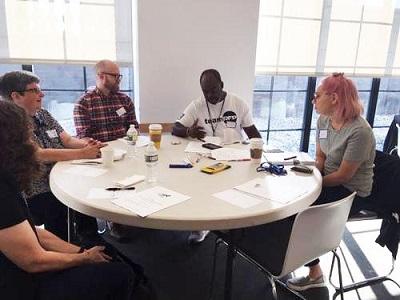
When trauma occurs before adulthood, Adverse Childhood Experiences (ACEs) can deeply affect the individual’s social, emotional and cognitive development, such as impacting one’s ability to process language. Conventional ACEs are based upon different aspects of abuse, neglect and household/family dysfunction, such as having an incarcerated relative (ACE Study).
In Philadelphia, researchers determined that 21.5 percent of the 1,700 residents surveyed have experienced four or more of these conventional ACEs (Trauma-Informed Philanthropy Volume One). Furthermore, the Philadelphia ACEs survey also expanded to include bullying, racism, community violence, living in foster care and neighborhood safety. When these additional ACEs were included, the study found that 37.3 percent of the residents have experienced four or more ACEs.
Trauma can affect one’s ability to communicate effectively. Free Library staff members need to be aware of how trauma plays a role in our interactions internally with staff and with the public. We can address this need by incorporating trauma awareness and healing through a strength-based, person-first foundation into our service model. This holistic approach does not define a person solely by one part, but recognizes the whole person. For example, instead of saying "a diabetic," the language shifts to "a person with diabetes." This shift in language then enables us to better recognize and support the assets, the potential one has instead of the deficits. Check out more information here: "The Future of Healing" and "What is People First Language?"
At our annual All Staff Day, "Trauma 101" trainings were facilitated by Hopeworks, an organization that "provides a positive, healing atmosphere that propels young people to build strong futures and break the cycle of violence and poverty in Camden, New Jersey." The professional development was well-received by participants, with many expressing the importance and the significance of having the Free Library continue on this path.
For more information about the Skills for Community-Centered Libraries initiative, contact Project Coordinator Cameron Voss at vossc@freelibrary.org.

